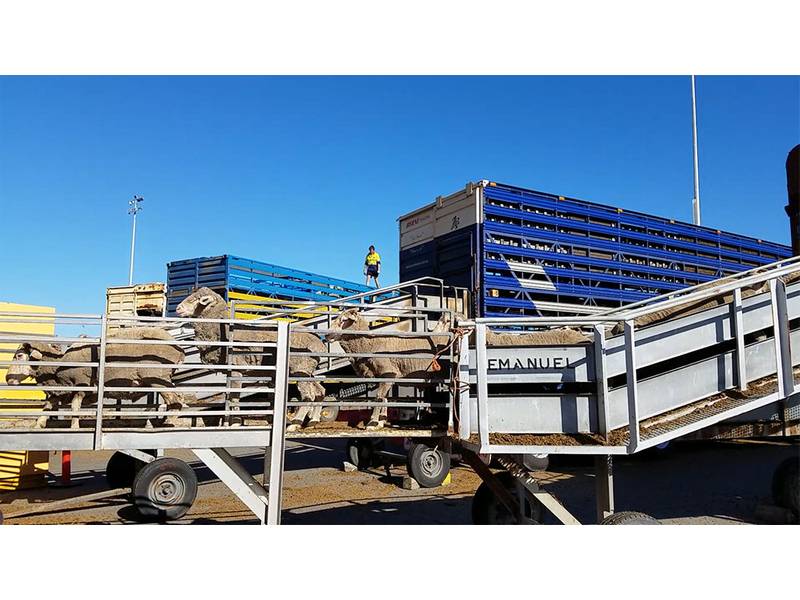RSPCA Analyzes Livestock Observer Reports
The Australian government instigated a program of having independent observers on livestock carriers after onboard footage was published in 2018 showing thousands of sheep dying of heat stress on a vessel.
The RSPCA has now released an analysis of the reports produced by independent observers, indicating that 80% of the reports from recent live sheep export voyages say sheep are starving on board, and at least 60% reported animals suffering with signs of heat stress.

The results come after an analysis undertaken of data from over 53 live sheep export journeys carrying 2.5 million sheep between 2018 and 2023.
Th analysis also shows that over the course of these journeys, more than 6,551 sheep died on board. Most died from inanition (starvation), gastrointestinal disease, pneumonia or injury. Independent Observers do not record how many sheep die as a result of stress, injury or illness before boarding or after disembarkation.
RSPCA Australia Chief Scientific Officer Dr Suzanne Fowler said: “For years now, we’ve heard repeated claims of reform and improvements from live export lobbyists, but we’ve never seen any reliable or independent evidence to substantiate those claims.
“Today, we see — once again — independent evidence that validates the continuing community concerns and irrefutably supports the RSPCA’s concerns that sheep, overwhelmingly, continue to suffer terribly in live export, with alarming levels of starvation, heat stress, injury and illness,” she said.
The analysis, which was undertaken by the RSPCA’s scientists and independently validated, also suggests around 70% of reports contain issues of non-compliance with the Australian Standards for the Export of Livestock (ASEL) requirements. These included exceeding the minimum space requirements for sheep, poor selection and loading of sheep not fit to transport, poor animal handling, poor management of sick and injured animals on board, and animals unable to reach food and water.
According to the reports, the most common veterinary treatments administered to sheep on board were for ‘shy feeding’ and gastrointestinal disease, lameness, injury and misadventure, pink eye, and scabby mouth.
Fourteen of the 53 independent observer reports also indicated issues with ventilation, including sheep being housed in unapproved areas of the ship, hot spots near engine rooms, and the smell of ammonia building up in some pens.
“If these problems could be fixed, they would have been fixed by now,” says Fowler. “While some improvements have been forced upon the industry by increasing regulation over time, in reality, little has changed because little can change: the issues with live export are inherent to the trade and business model, and are unfixable.”
The analysis comes after the introduction of a bill in the Lower House of the Australian Parliament to phase out the live export of sheep. Australia’s Minister for Agriculture has already announced that the nation’s live sheep export trade is to end on May 1, 2028.
The analysis also coincides with a rally organized by Western Australian locals to protest the ban. Australian Livestock Exporters’ Council CEO, Mark Harvey-Sutton, said he was pleased to ride in the cab of one of the trucks. “I am pleased to be here, standing together with farmers and uniting to have this disastrous policy reversed. We hope that the people of Perth join with us in supporting this. It’s not just a policy that will hurt farmers. The impact on the entire sheep supply chain will hurt families throughout Western Australia.”
The Keep the Sheep campaign has received over 19,000 signatures since the petition was opened two days ago. “We know that people across Western Australia support farmers and truckies. We know that West Australians agree that the Government destroying livelihoods during a cost of living crisis is unfair,” he said.
“We won’t stop fighting this ban, and it will be an election issue for the Government in Western Australia and beyond.”
